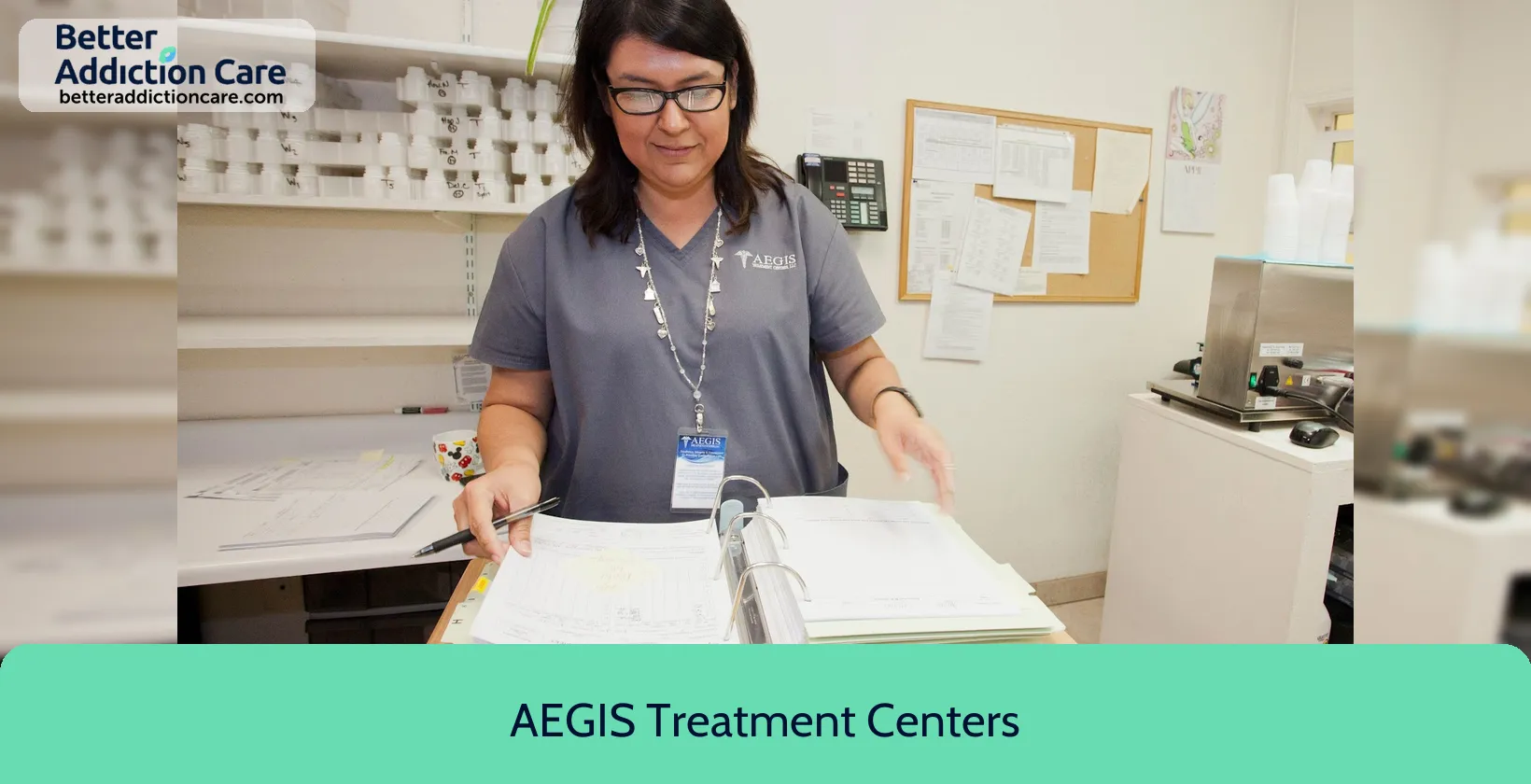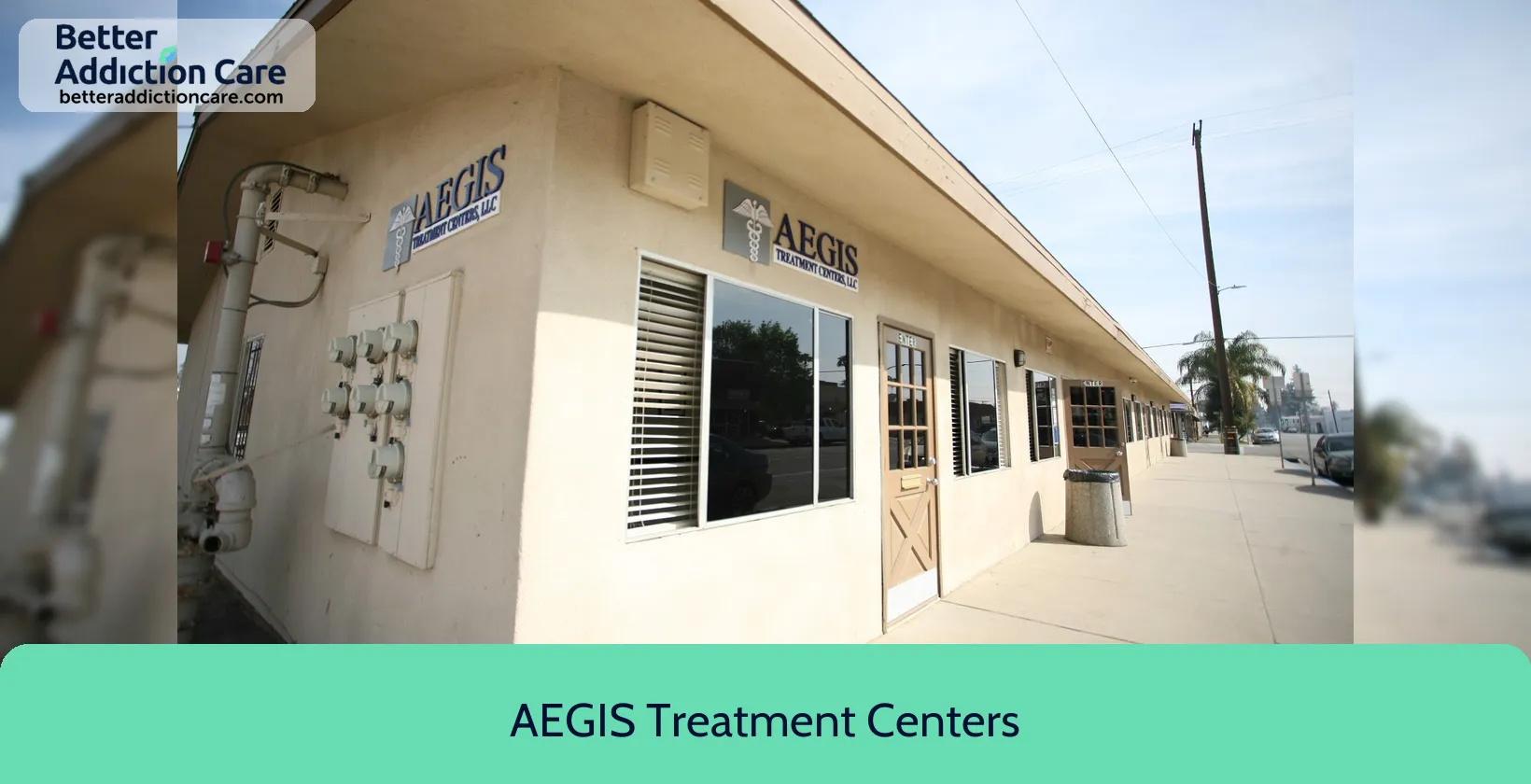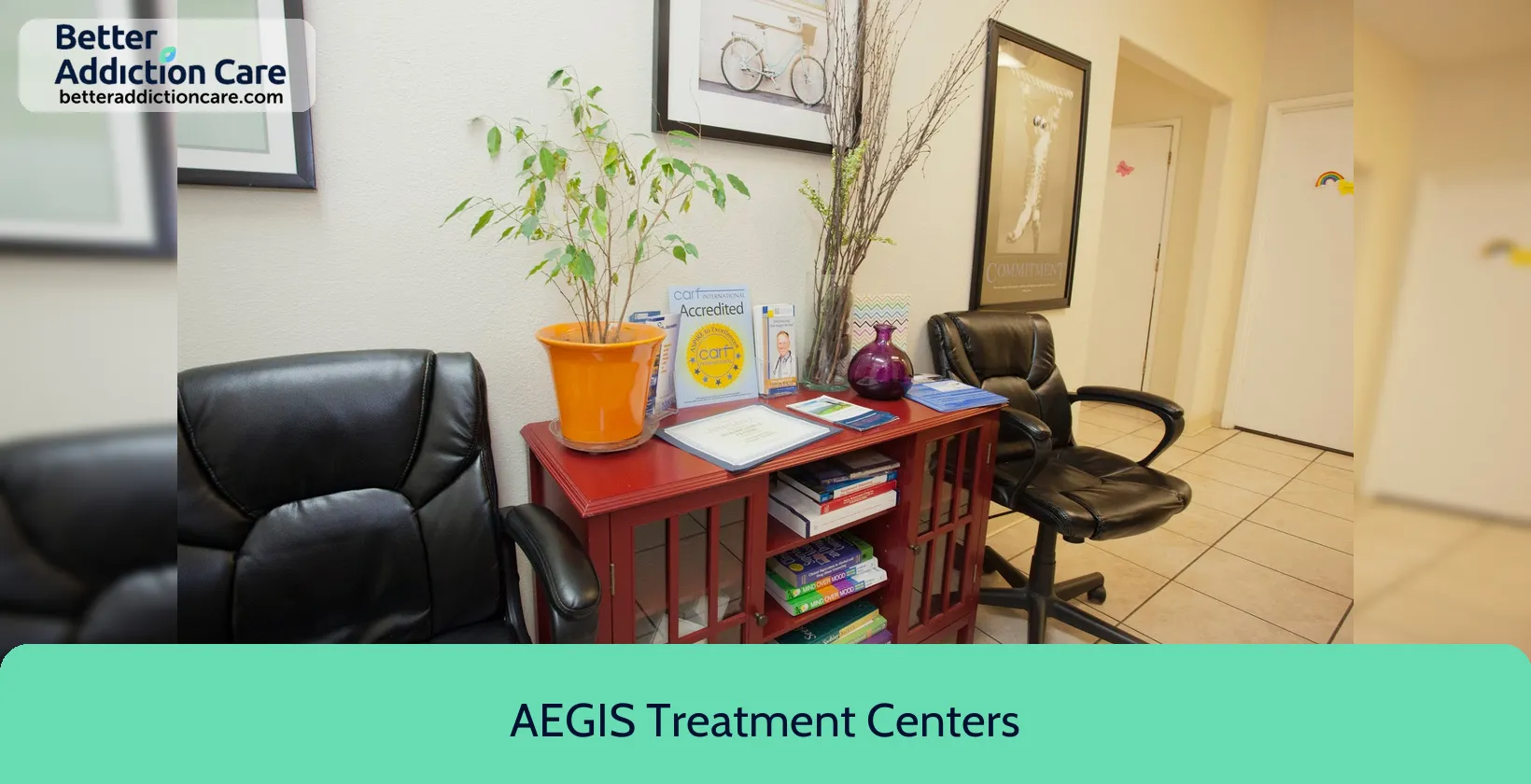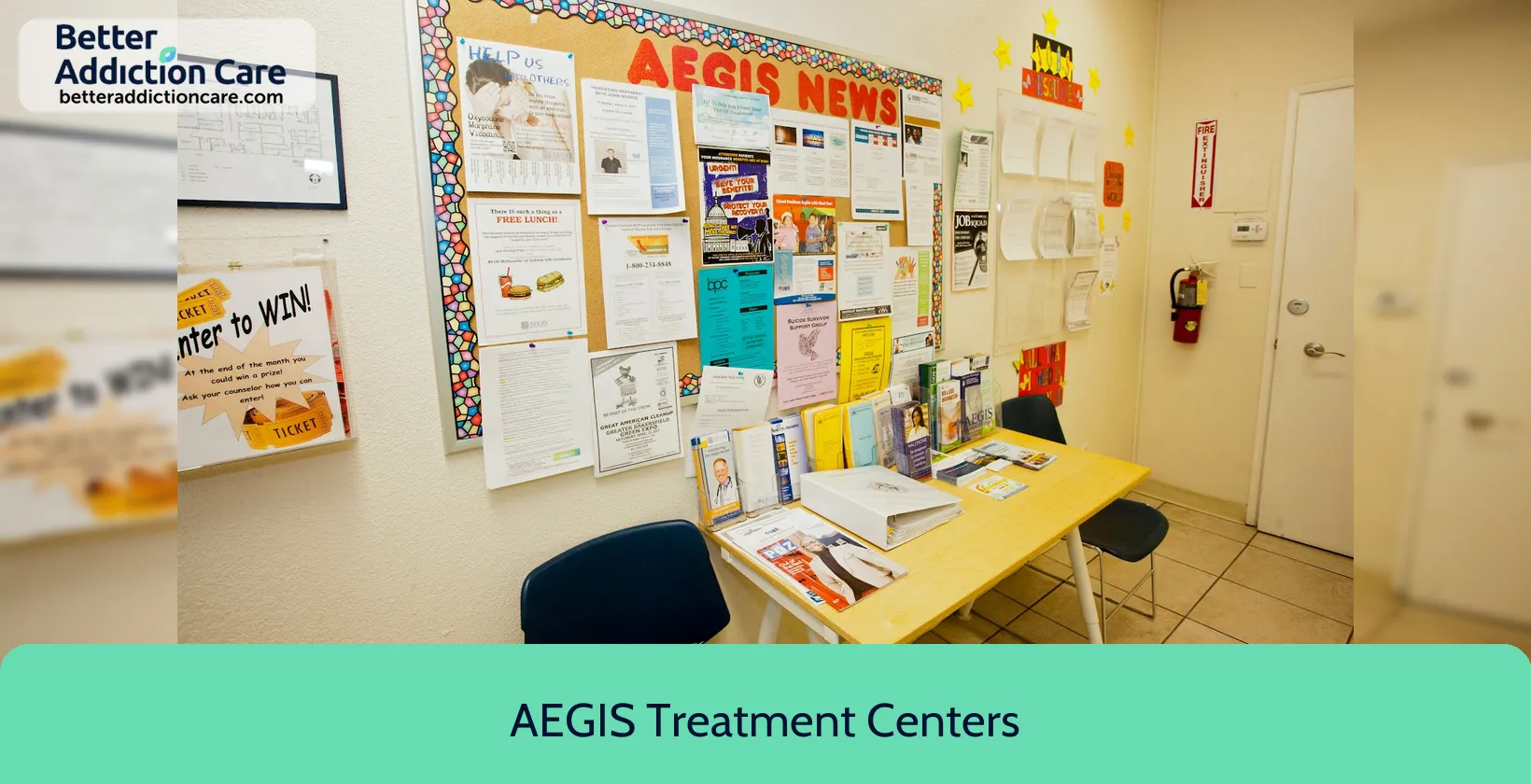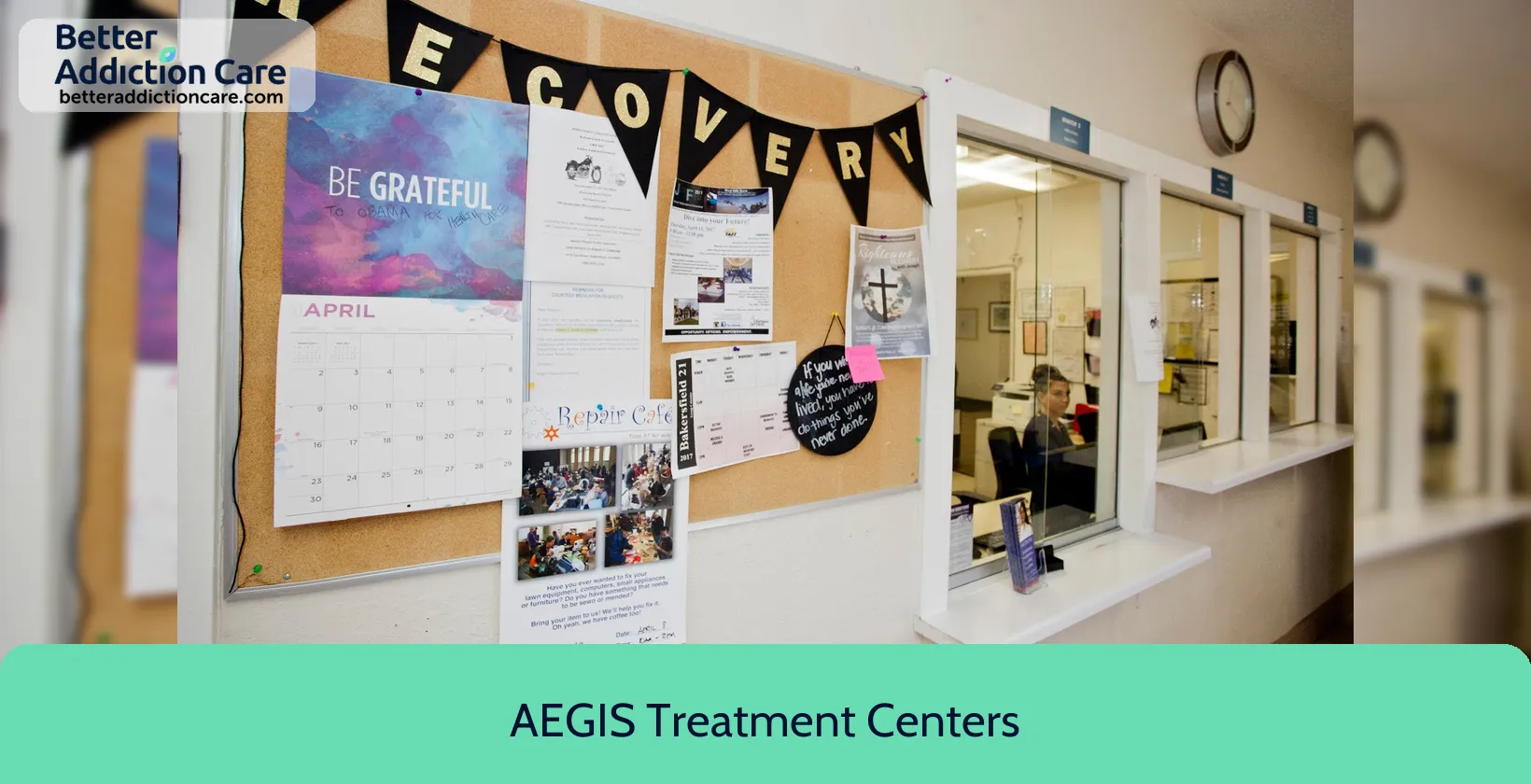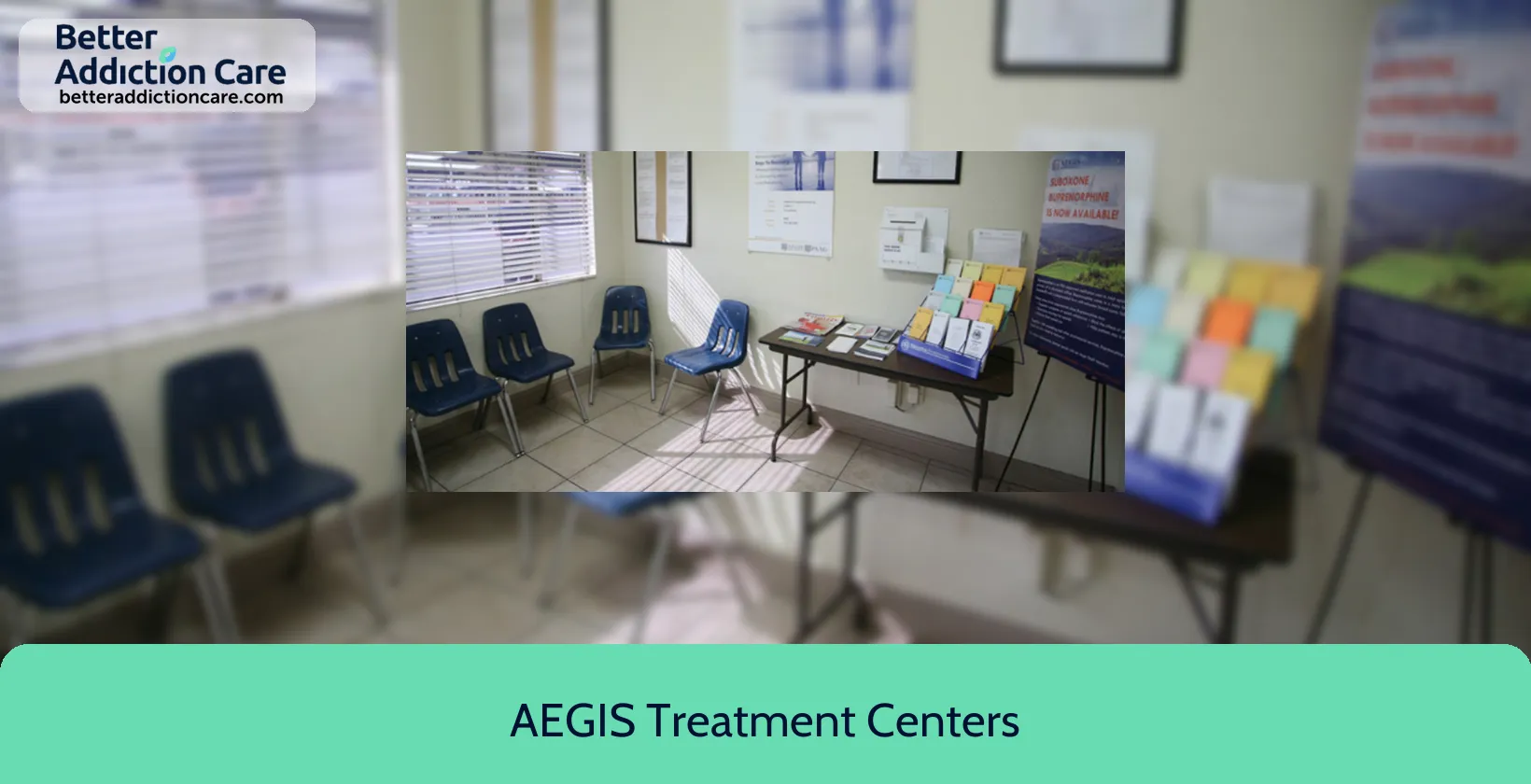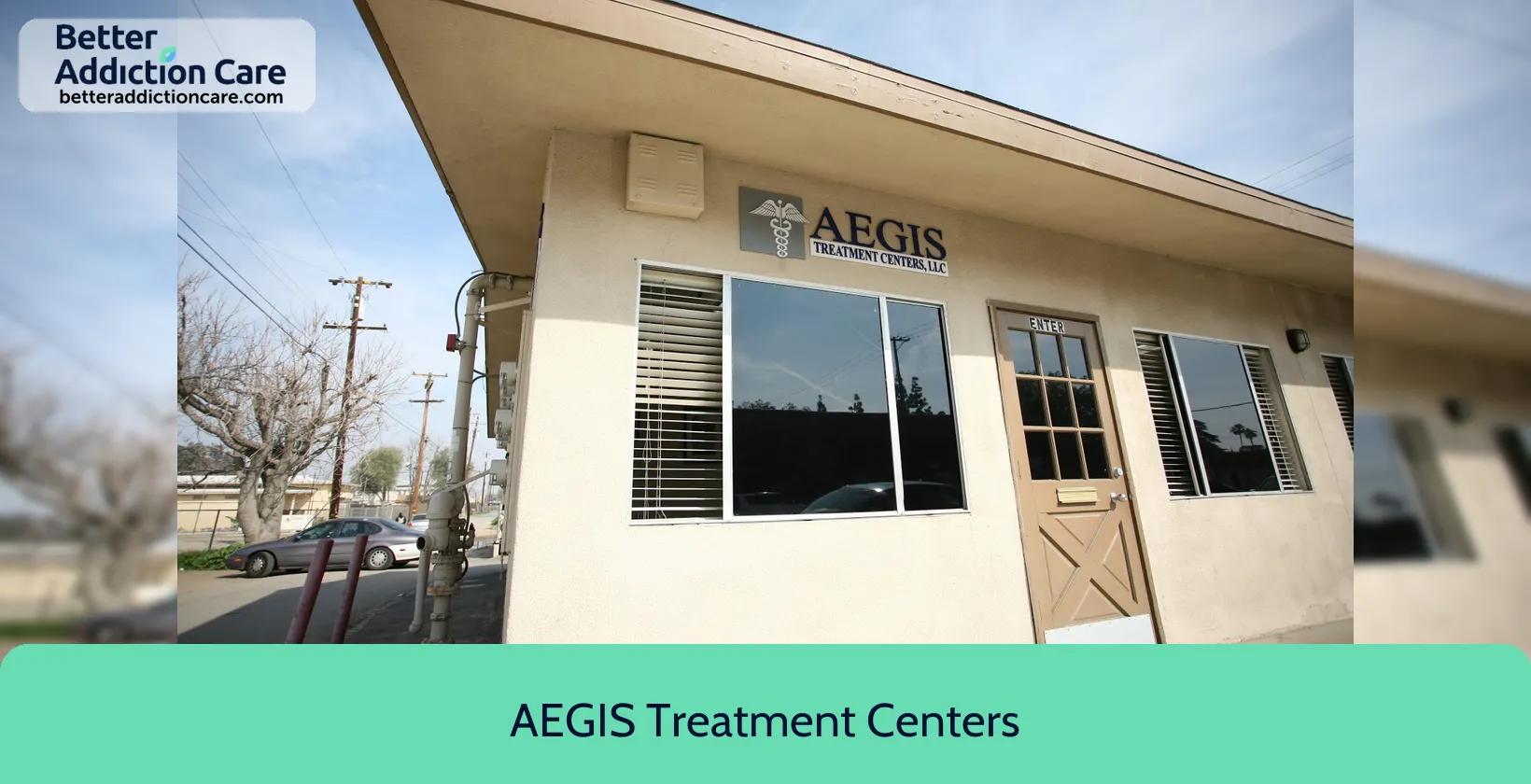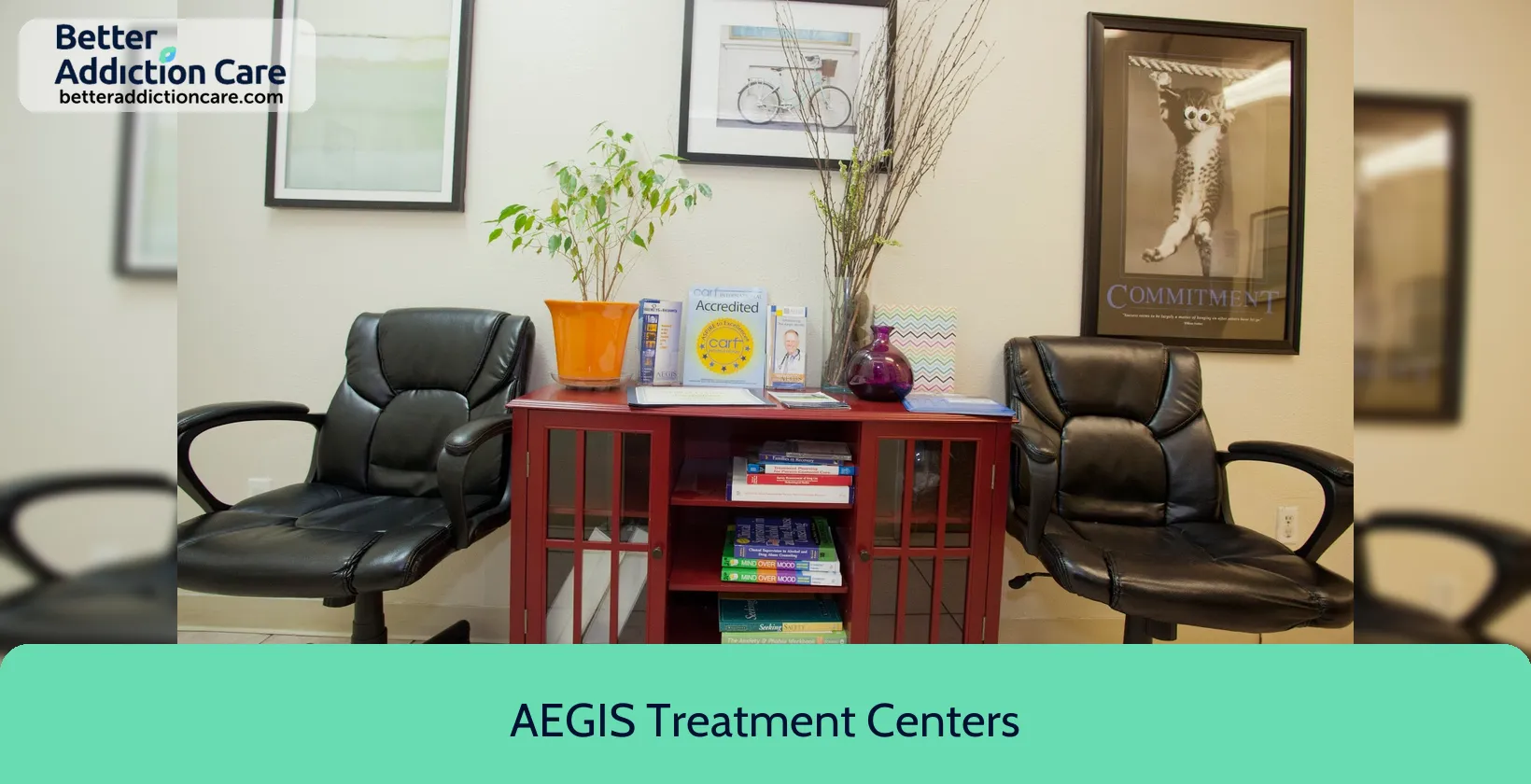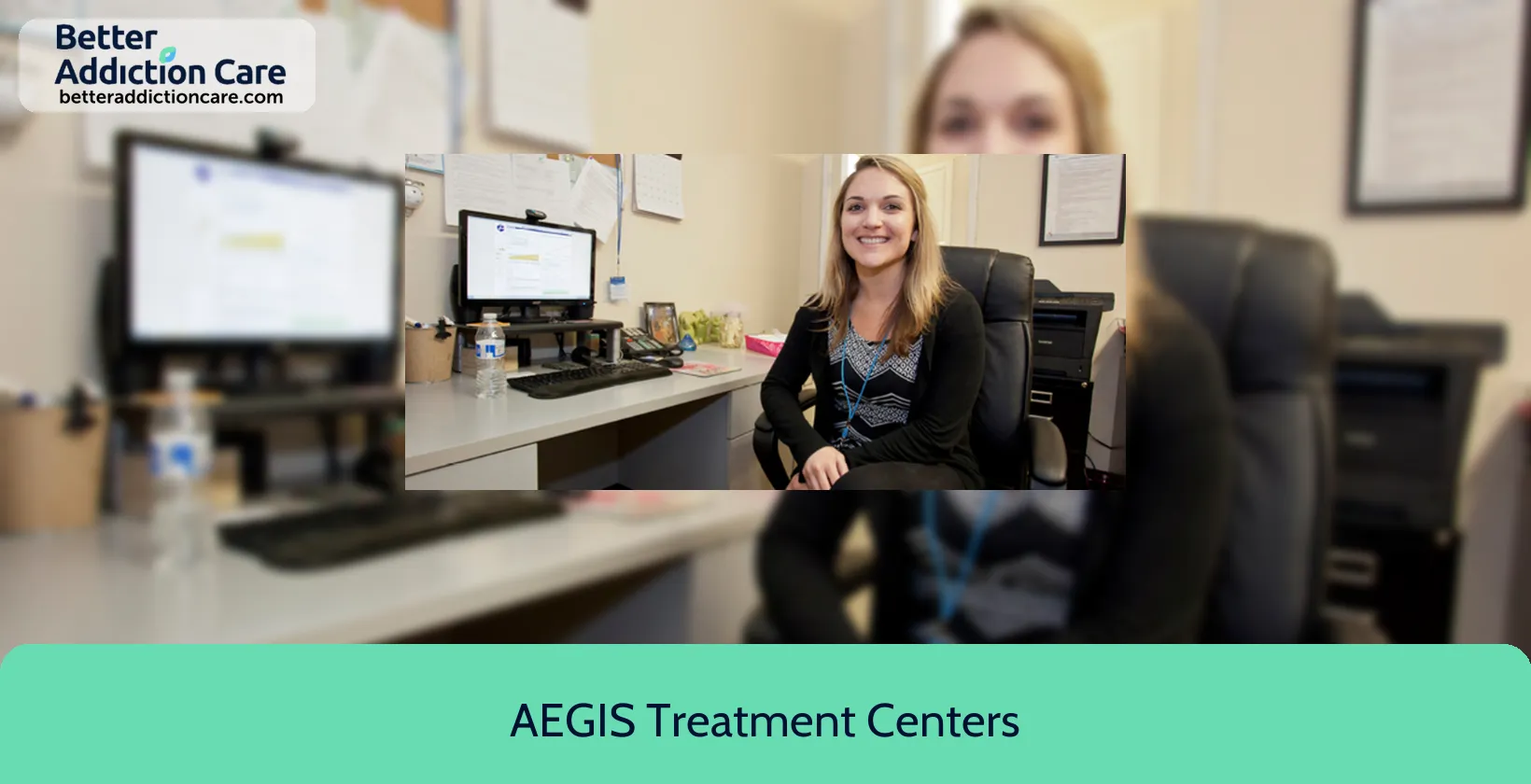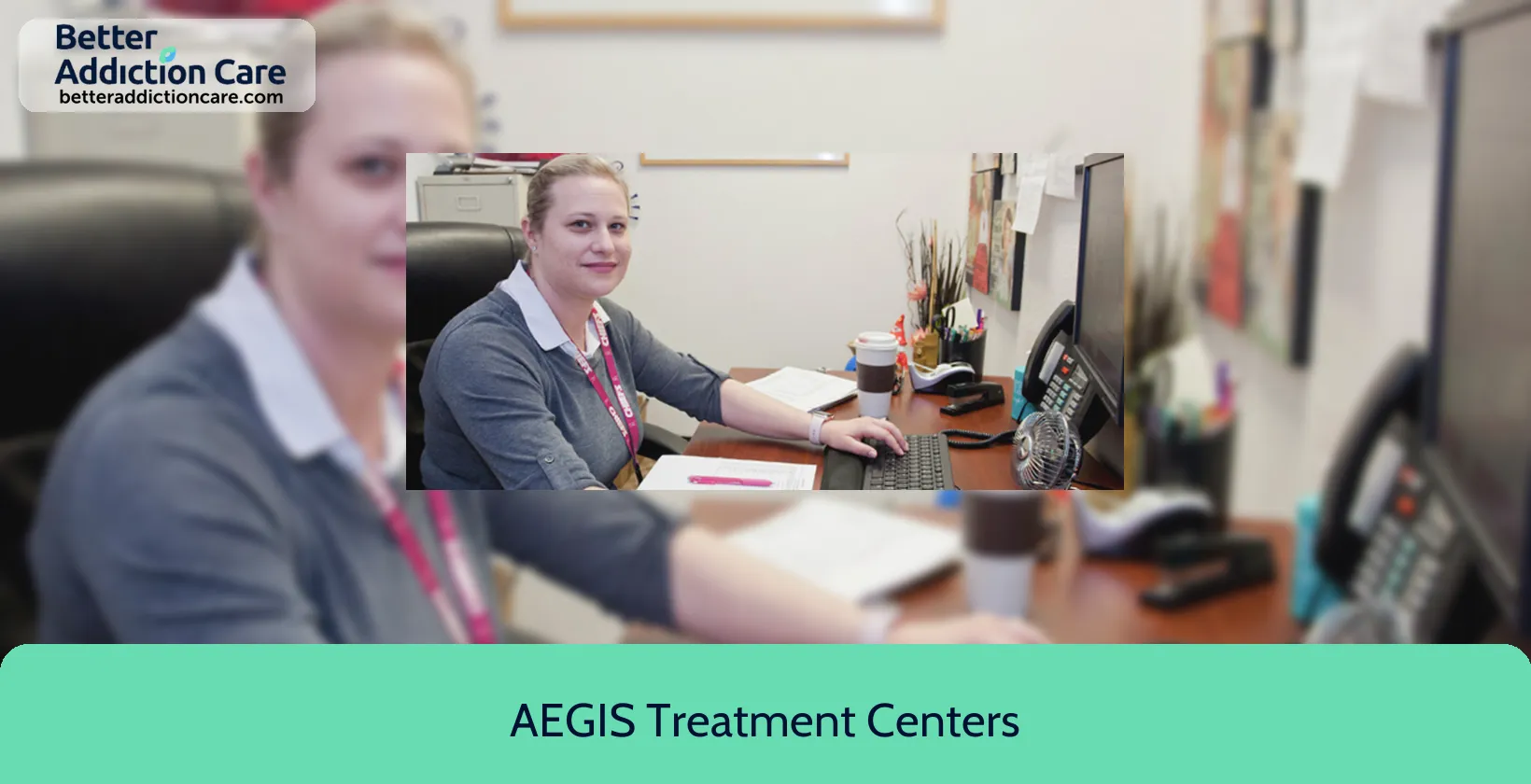AEGIS Treatment Centers
Overview
AEGIS Treatment Centers is an accredited substance abuse treatment center that provides outpatient detoxification, for men and women from 18+ years of age. As part of their special programs, AEGIS Treatment Centers treats clients with hiv or aids, pregnant/postpartum women, and active duty military. To help patients achieve sobriety, AEGIS Treatment Centers provides intake assessments. Afterward, patients receive 12-step facilitation, individual psychotherapy, and group counseling during treatment. AEGIS Treatment Centers is located in Bakersfield, California, providing treatment for people in Kern County, accepting cash or self-payment, state-financed health insurance plan other than medicaid, and federal military insurance (e.g., tricare).
AEGIS Treatment Centers at a Glance
Payment Options
- Cash or self-payment
- State-financed health insurance plan other than Medicaid
- Federal military insurance (e.g., TRICARE)
- Private health insurance
- Aetna
Assessments
- Comprehensive substance use assessment
Age Groups
- Young adults
- Adults
Operation
- Private for-profit organization
Highlights About AEGIS Treatment Centers
7.06/10
With an overall rating of 7.06/10, this facility has following balanced range of services. Alcohol Rehabilitation: 8.00/10, Drug Rehab and Detox: 6.62/10, Insurance and Payments: 6.67/10, Treatment Options: 6.97/10.-
Alcohol Rehabilitation 8.00
-
Treatment Options 6.97
-
Insurance and Payments 6.67
-
Drug Rehab and Detox 6.62
Accreditations
Commission on Accreditation of Rehabilitation Facilities (CARF):

CARF accreditation is a prestigious recognition granted to rehabilitation and human service organizations. It signifies that an organization meets high-quality standards, having undergone a rigorous evaluation process. CARF accreditation boosts an organization's credibility and ensures top-notch care for individuals with disabilities, injuries, or healthcare needs.
Registration: 259291
SAMHSA certification for opioid treatment program (OTP):
SAMHSA's Opioid Treatment Programs (OTP) accreditation is a prestigious recognition that signifies a program's compliance with stringent standards and guidelines established by the Substance Abuse and Mental Health Services Administration (SAMHSA). This accreditation demonstrates an OTP's commitment to providing high-quality, evidence-based care for individuals struggling with opioid use disorder (OUD). It serves as a trusted symbol of accountability and excellence, assuring patients, families, and communities that the OTP offers safe, effective, and comprehensive treatment options for OUD.
State department of health:

Government agencies issue State Licenses, granting rehabilitation organizations permission to operate their businesses lawfully within specific geographic regions. The specific licenses needed for legal operation are typically determined by the type of rehabilitation program offered by the facility and its physical location.
Treatment At AEGIS Treatment Centers
Treatment Conditions
- Alcoholism
- Opioid Addiction
- Substance use treatment
Care Levels
- Detoxification
- Aftercare
- Outpatient
Treatment Modalities
- 12-step facilitation
- Individual psychotherapy
- Group counseling
- Family counseling
- Marital/couples counseling
Ancillary Services
Languages
- Spanish
Special Programs
- Clients with HIV or AIDS
- Pregnant/postpartum women
- Active duty military
- Clients who have experienced trauma
Get Help Now
Common Questions About AEGIS Treatment Centers
Contact Information
Other Facilities in Bakersfield

6.77

6.74

6.53

6.91

6.56
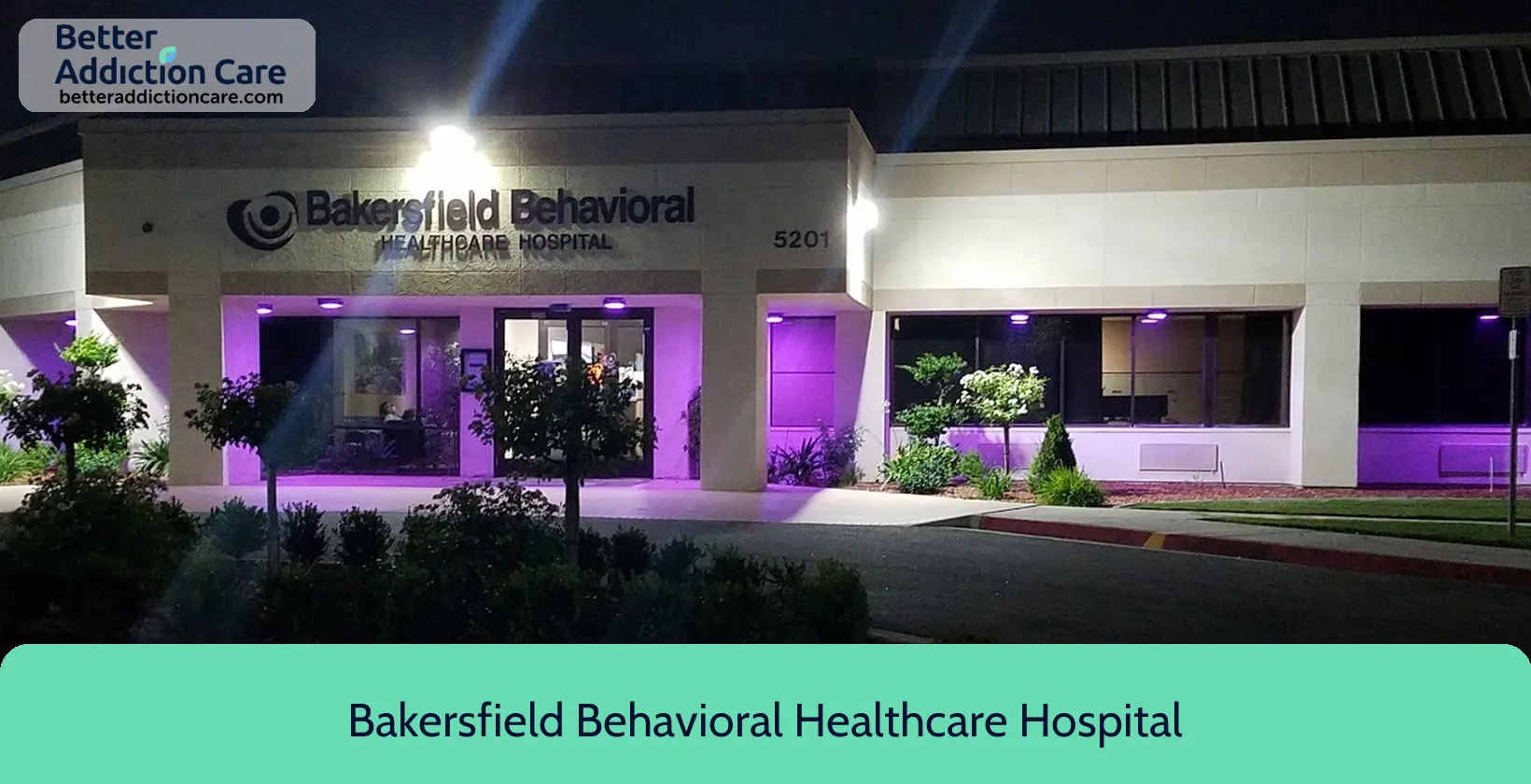
6.62
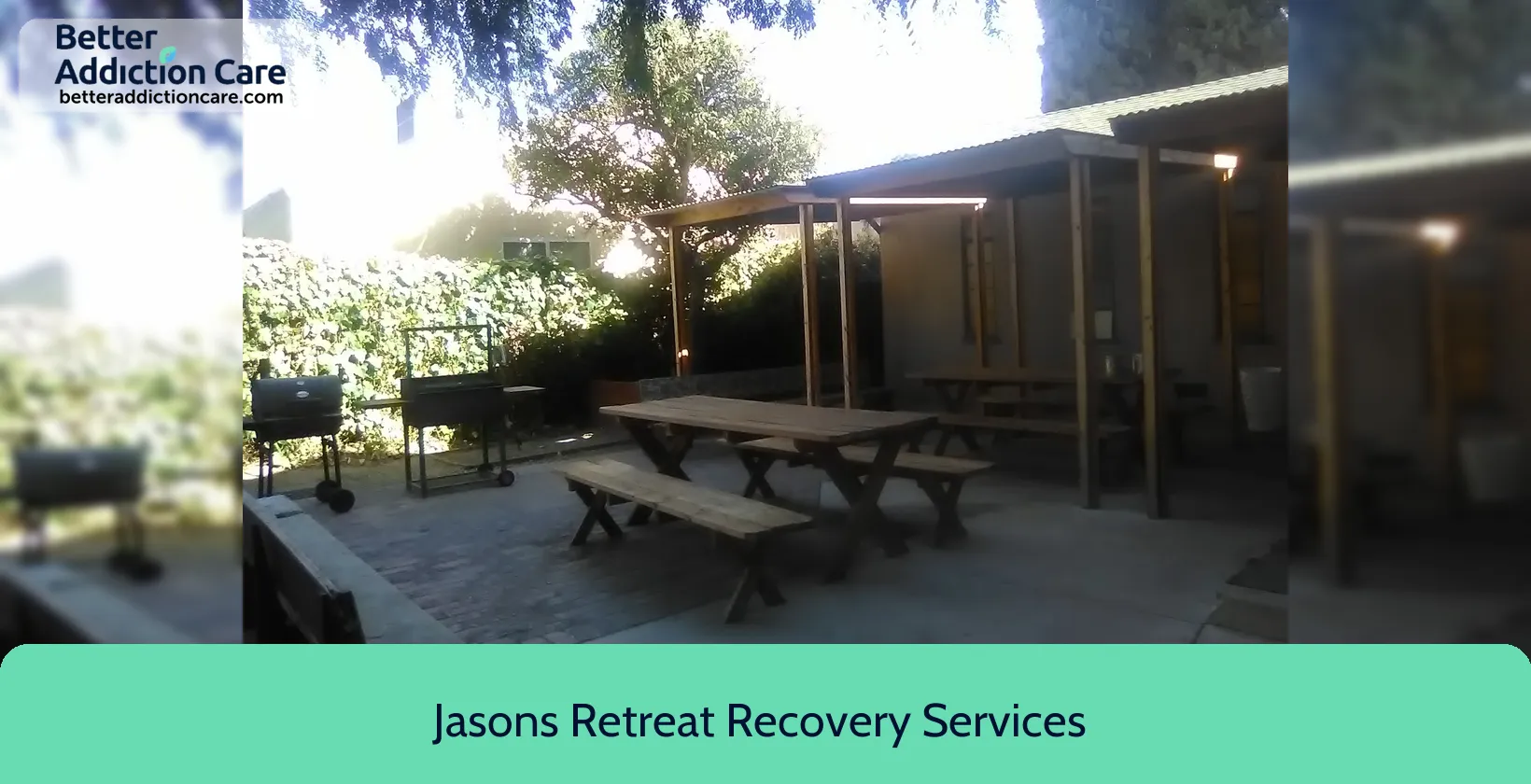
6.65

7.18
DISCLAIMER: The facility name, logo and brand are the property and registered trademarks of Synergy Recovery Services, and are being used for identification and informational purposes only. Use of these names, logos and brands shall not imply endorsement. BetterAddictionCare.com is not affiliated with or sponsored by Synergy Recovery Services.
